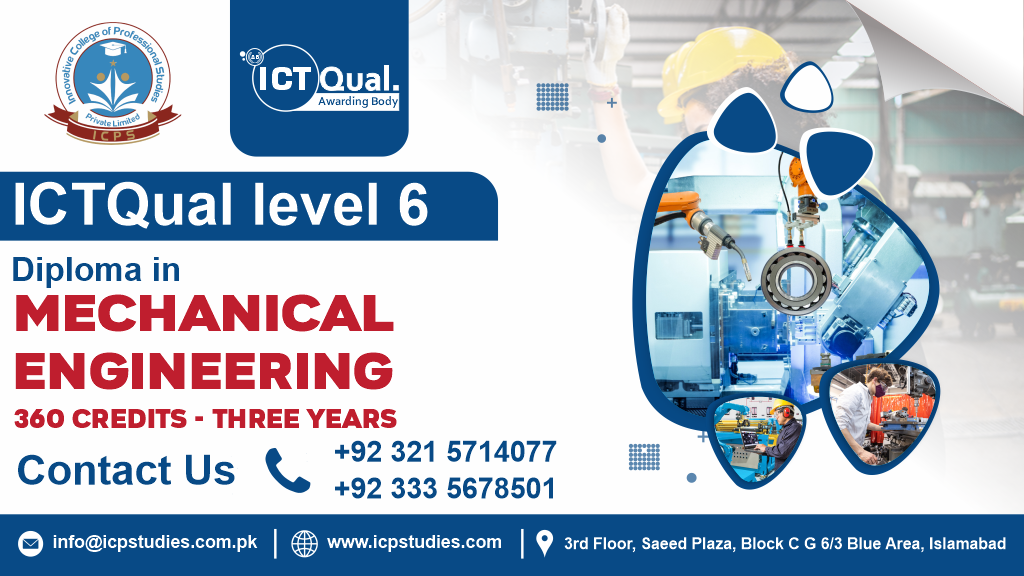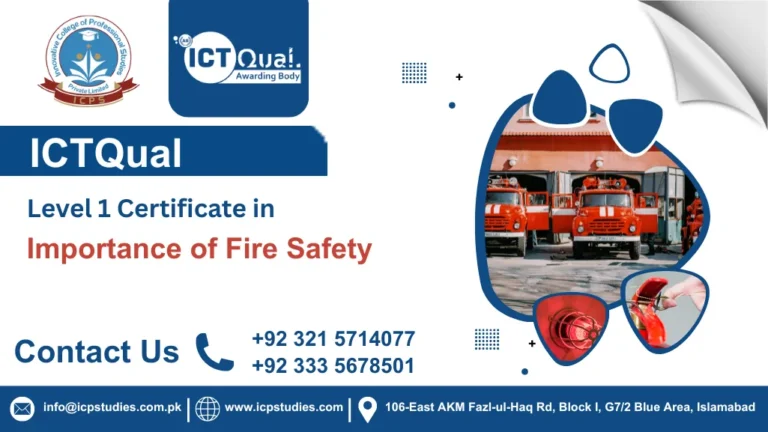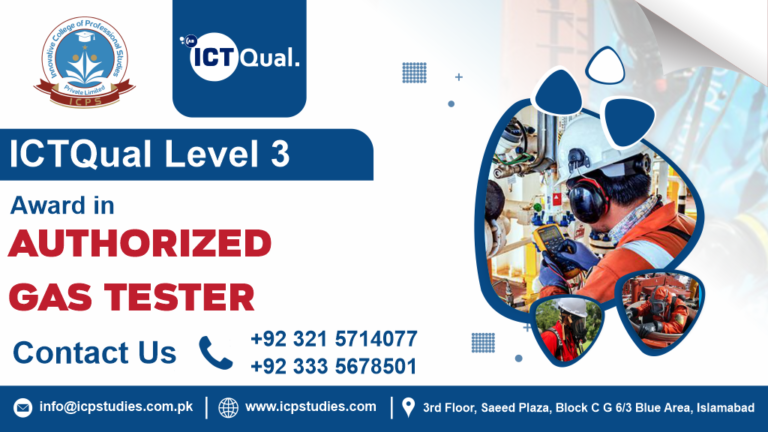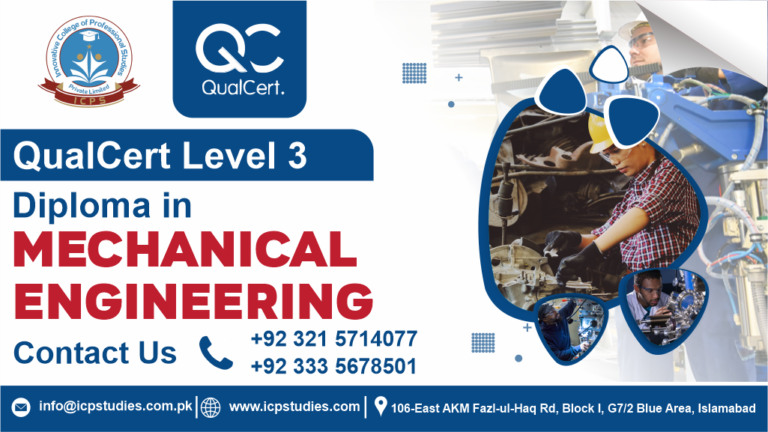The ICTQual Level 6 Diploma in Mechanical Engineering is a comprehensive, three-year qualification designed to equip students with advanced knowledge, skills, and expertise in mechanical engineering. With 360 credits over three years, this course provides in-depth learning in mechanical design, systems, analysis, manufacturing, and advanced engineering topics. It’s an ideal choice for individuals aiming to become experts in mechanical engineering or pursue leadership roles in the industry.
The ICTQual Level 6 Diploma in Mechanical Engineering (360 Credits) is structured to provide students with a high-level understanding of mechanical engineering concepts and real-world applications. This program prepares learners for senior roles in engineering, research, product development, and system design. The course integrates theoretical learning with hands-on experience, ensuring that graduates are ready to address complex engineering challenges in diverse industries like automotive, aerospace, manufacturing, and energy.
The ICTQual Level 6 Diploma in Mechanical Engineering is an excellent qualification for those looking to take their engineering career to the next level. Over three years, you’ll gain specialized knowledge, hands-on experience, and the skills necessary to succeed in a wide range of industries, from automotive to aerospace. Whether you’re an aspiring engineer or looking to advance your career, this diploma will provide the tools, knowledge, and recognition to help you achieve your goals.
Ready to take the next step in your engineering career? Explore the ICTQual Level 6 Diploma in Mechanical Engineering and get started today!
All About ICTQual Level 6 Diploma in Mechanical Engineering 360 Credits – Three Years
Course Overview
The ICTQual Level 6 Diploma in Mechanical Engineering (360 Credits – Three Years) is a comprehensive and advanced qualification designed for individuals who aspire to reach the pinnacle of mechanical engineering expertise. Over three years, this program provides in-depth knowledge and practical experience in key areas of mechanical engineering, including system design, thermodynamics, fluid mechanics, manufacturing processes, and advanced materials science.
This diploma is ideal for students who are passionate about solving complex engineering problems and creating innovative solutions in industries such as automotive, aerospace, energy, and manufacturing. It equips learners with both theoretical foundations and hands-on skills that are essential for tackling real-world engineering challenges. By the end of the program, students will be prepared to take on senior roles in engineering, including design, project management, and systems optimization.
The ICTQual Level 6 Diploma focuses on building strong problem-solving abilities, leadership, and technical skills necessary to thrive in advanced mechanical engineering roles. This qualification also offers a pathway to further academic pursuits, such as a Master’s degree or specialized research in mechanical engineering.
Designed with flexibility in mind, the course allows learners to apply their knowledge in real-world settings through projects, industry collaboration, and research, ensuring they are well-prepared for the demands of modern mechanical engineering careers.
Study Units
- Year 1: Foundation and Core Engineering Principles
- Mathematics for Engineering
- Engineering Principles
- Materials Science and Engineering
- Engineering Drawing and CAD
- Statics and Dynamics
- Introduction to Thermodynamics
- Manufacturing Processes
- Fluid Mechanics
- Electrical and Electronic Systems for Engineers
- Engineering Mathematics for Design
- Mechanical Design Fundamentals
- Engineering Project Management
- Year 2: Advanced Engineering Concepts and Applications
- Advanced Thermodynamics
- Strength of Materials
- Heat Transfer and Fluid Dynamics
- Advanced Manufacturing Techniques
- Mechanical Vibrations and Acoustics
- Engineering Dynamics and Control
- Design and Analysis of Machine Elements
- Control Systems for Mechanical Engineering
- Engineering Materials and Failure Analysis
- Computer-Aided Engineering (CAE)
- Mechanical System Design
- Project Planning and Cost Estimation
- Year 3: Specialization and Practical Application
- Advanced Mechanical System Design
- Energy Systems and Sustainability
- Advanced CAD and 3D Modeling
- Finite Element Analysis (FEA) for Mechanical Engineers
- Advanced Manufacturing and Robotics
- Mechatronics and Automation
- Engineering Research Methodology
- Industrial Engineering and Process Optimization
- Design for Manufacturability
- Professional Practice in Mechanical Engineering
- Engineering Innovation and Entrepreneurship
- Capstone Project/Thesis
To be eligible for the ICTQual Level 6 Diploma in Mechanical Engineering, candidates must meet the following entry requirements:
1. Educational Background
- Minimum of a Level 5 Diploma or Equivalent: Applicants should have completed a Level 5 qualification in Mechanical Engineering or a related field (e.g., ICTQual Level 5, BTEC Higher National Diploma in Mechanical Engineering, or equivalent). This ensures that candidates have the foundational knowledge and technical skills required for advanced study.
- Advanced Level Qualifications (A-levels): Alternatively, candidates with A-levels in Mathematics and Physics, or other science and engineering-related subjects, will be considered for entry.
2. Relevant Work Experience (optional but beneficial)
- Industry Experience: Candidates with a strong background in mechanical engineering or related fields (e.g., industrial placements, apprenticeships, or work experience in mechanical engineering environments) are encouraged to apply. Practical experience will be beneficial in understanding the application of theoretical concepts.
3. Mathematical Competency
- A solid understanding of mathematics (including algebra, calculus, and basic statistics) is required to handle the advanced engineering mathematics covered in the course. A minimum grade in Mathematics (e.g., GCSE grade C or equivalent) is recommended.
4. English Language Proficiency
- For non-native English speakers, proof of English proficiency is required. Accepted tests include:
- IELTS: A minimum score of 6.0 overall, with no individual band below 5.5.
- TOEFL: A score of at least 80 (iBT).
- Equivalent English Qualifications: Other internationally recognized English qualifications may also be accepted.
5. Personal Statement
- A personal statement outlining the applicant’s interest in mechanical engineering, career aspirations, and motivation for pursuing the Level 6 Diploma.
6. Interview
- Depending on the applicant’s educational background, an interview may be required to assess the applicant’s aptitude for the course, discuss their previous qualifications, and ensure their readiness for advanced study in mechanical engineering.
7. Age Requirement
- Applicants should typically be 18 years or older. For mature students with relevant professional experience, entry may be considered based on individual merit.
These entry requirements ensure that candidates have the necessary academic background, technical knowledge, and practical skills to succeed in this advanced mechanical engineering course.
The ICTQual Level 6 Diploma in Mechanical Engineering (360 Credits – Three Years) is typically designed for the following groups of individuals:
- Engineering Professionals Seeking Advanced Qualifications:
- This course is ideal for individuals who are already working in the field of mechanical engineering but want to formalize or advance their knowledge and skills to a higher level.
- It is suitable for those aiming for managerial roles or higher technical positions, as it offers specialized knowledge that can be applied in real-world engineering scenarios.
- Technicians and Technologists:
- The course is also suitable for individuals working as technicians, technologists, or engineers who want to develop a deeper understanding of mechanical engineering principles.
- Those looking to enhance their technical expertise and move into more complex, high-responsibility tasks in areas like design, manufacturing, production, or maintenance may benefit from this qualification.
- Career Changers into Mechanical Engineering:
- People with a background in other engineering disciplines or fields may pursue this course to transition into mechanical engineering roles. It provides the necessary foundational and advanced skills for this purpose.
- Graduates of Level 5 Qualifications:
- Individuals who have completed a Level 5 qualification, such as a diploma or a degree in a related field (like engineering or technology), and wish to specialize further in mechanical engineering.
- Managers in Engineering Projects:
- Professionals working in managerial roles within the engineering industry who want to gain more technical knowledge in mechanical engineering and understand the application of various engineering tools and techniques in complex projects.
The Level 6 qualification is typically equivalent to the final year of a bachelor’s degree, and the course’s emphasis on gaining 360 credits over a three-year period indicates that it is an in-depth program designed for professionals aiming for expertise and leadership roles within the mechanical engineering sector.
Learning Outcomes
Year 1: Foundation and Core Engineering Principles
- Mathematics for Engineering
- Master foundational mathematical techniques necessary for solving engineering problems.
- Apply calculus, algebra, and trigonometry to real-world engineering contexts.
- Engineering Principles
- Understand and apply fundamental engineering concepts, such as forces, motion, and energy.
- Build a strong foundation in engineering mechanics and systems analysis.
- Materials Science and Engineering
- Develop knowledge of the properties, behavior, and selection of materials used in mechanical engineering.
- Analyze the suitability and performance of materials for various engineering applications.
- Engineering Drawing and CAD
- Learn to create and interpret technical engineering drawings.
- Acquire proficiency in Computer-Aided Design (CAD) software to model mechanical systems.
- Statics and Dynamics
- Apply principles of static and dynamic analysis to engineering problems.
- Solve for forces, moments, and motion in mechanical systems.
- Introduction to Thermodynamics
- Understand the basic laws and principles of thermodynamics in mechanical engineering.
- Analyze energy transformations and heat transfer within mechanical systems.
- Manufacturing Processes
- Gain knowledge of key manufacturing techniques such as casting, machining, and welding.
- Understand how these methods apply to the production of mechanical components.
- Fluid Mechanics
- Study fluid properties and behavior, including fluid flow.
- Apply fluid mechanics principles to solve practical engineering problems.
- Electrical and Electronic Systems for Engineers
- Understand basic electrical systems, circuits, and components.
- Learn how electrical and electronic systems integrate with mechanical engineering applications.
- Engineering Mathematics for Design
- Apply advanced mathematical methods to solve design challenges in mechanical systems.
- Use mathematical modeling techniques to analyze and optimize mechanical designs.
- Mechanical Design Fundamentals
- Understand key principles of mechanical design, including material selection and stress analysis.
- Develop skills to design mechanical components and systems for various applications.
- Engineering Project Management
- Learn the fundamentals of project management, including planning, risk assessment, and resource allocation.
- Understand how to effectively manage engineering projects to ensure successful outcomes.
Year 2: Advanced Engineering Concepts and Applications
- Advanced Thermodynamics
- Build on basic thermodynamics knowledge by studying advanced thermodynamic cycles and energy systems.
- Apply thermodynamic principles to analyze and design energy-efficient systems.
- Strength of Materials
- Analyze the mechanical strength and deformation of materials under various loading conditions.
- Apply principles of stress, strain, and failure analysis to real-world engineering problems.
- Heat Transfer and Fluid Dynamics
- Study the mechanisms of heat transfer and fluid flow in mechanical systems.
- Solve complex engineering problems involving heat transfer and fluid dynamics.
- Advanced Manufacturing Techniques
- Learn cutting-edge manufacturing methods such as CNC machining, additive manufacturing, and robotics.
- Understand the benefits and challenges of these techniques in the manufacturing industry.
- Mechanical Vibrations and Acoustics
- Analyze mechanical vibrations, resonance, and their effects on system performance.
- Apply acoustic principles to control noise and vibration in mechanical designs.
- Engineering Dynamics and Control
- Understand the behavior of dynamic systems and apply control theory to maintain system stability.
- Design control systems to optimize mechanical system performance.
- Design and Analysis of Machine Elements
- Design and analyze key machine elements such as gears, shafts, and bearings.
- Understand the operational principles and performance characteristics of these components.
- Control Systems for Mechanical Engineering
- Apply control theory to the design and optimization of mechanical systems.
- Develop feedback control mechanisms to enhance system stability and efficiency.
- Engineering Materials and Failure Analysis
- Study material failure mechanisms such as fatigue, fracture, and corrosion.
- Conduct failure analysis to improve mechanical system reliability.
- Computer-Aided Engineering (CAE)
- Develop proficiency in using CAE tools for simulation, modeling, and design validation.
- Apply techniques like Finite Element Analysis (FEA) and Computational Fluid Dynamics (CFD) in mechanical design.
- Mechanical System Design
- Design and optimize mechanical systems by considering performance, safety, and cost.
- Solve system-level engineering challenges through comprehensive analysis and design.
- Project Planning and Cost Estimation
- Master techniques for estimating costs and managing project timelines.
- Develop the ability to allocate resources and plan for the successful completion of engineering projects.
Year 3: Specialization and Practical Application
- Advanced Mechanical System Design
- Apply advanced design principles to create complex mechanical systems.
- Incorporate optimization techniques to improve system efficiency and performance.
- Energy Systems and Sustainability
- Study sustainable energy systems and renewable energy technologies within mechanical engineering.
- Design energy-efficient systems with a focus on minimizing environmental impact.
- Advanced CAD and 3D Modeling
- Gain expertise in advanced CAD tools for 3D modeling and simulation.
- Create detailed models and prototypes of mechanical systems.
- Finite Element Analysis (FEA) for Mechanical Engineers
- Master FEA techniques to analyze and optimize mechanical structures.
- Solve complex structural problems involving stress, strain, and deformation.
- Advanced Manufacturing and Robotics
- Study advanced manufacturing techniques and explore the integration of robotics in production processes.
- Apply automation and robotics to optimize manufacturing systems.
- Mechatronics and Automation
- Understand the integration of mechanical, electrical, and control systems to create automated systems.
- Design mechatronic systems for industrial and commercial applications.
- Engineering Research Methodology
- Develop research skills to investigate engineering problems and propose solutions.
- Learn how to conduct experiments, analyze data, and present findings professionally.
- Industrial Engineering and Process Optimization
- Apply industrial engineering techniques to optimize manufacturing processes and improve efficiency.
- Analyze workflows to reduce costs and increase productivity.
- Design for Manufacturability
- Learn how to design systems with manufacturability and cost-effectiveness in mind.
- Optimize designs for ease of production and reduced manufacturing costs.
- Professional Practice in Mechanical Engineering
- Understand the ethical, professional, and regulatory responsibilities of mechanical engineers.
- Gain skills in navigating industry standards, regulations, and effective communication within the workplace.
- Engineering Innovation and Entrepreneurship
- Explore innovation and entrepreneurship opportunities in the engineering field.
- Develop the skills necessary to bring new engineering solutions and products to market.
- Capstone Project/Thesis
- Apply the knowledge acquired throughout the program to complete a comprehensive engineering project or research thesis.
- Demonstrate the ability to solve real-world engineering challenges and present findings in a professional manner.
FAQs about ICTQual Level 6 Diploma in Mechanical Engineering 360 Credits – Three Years







